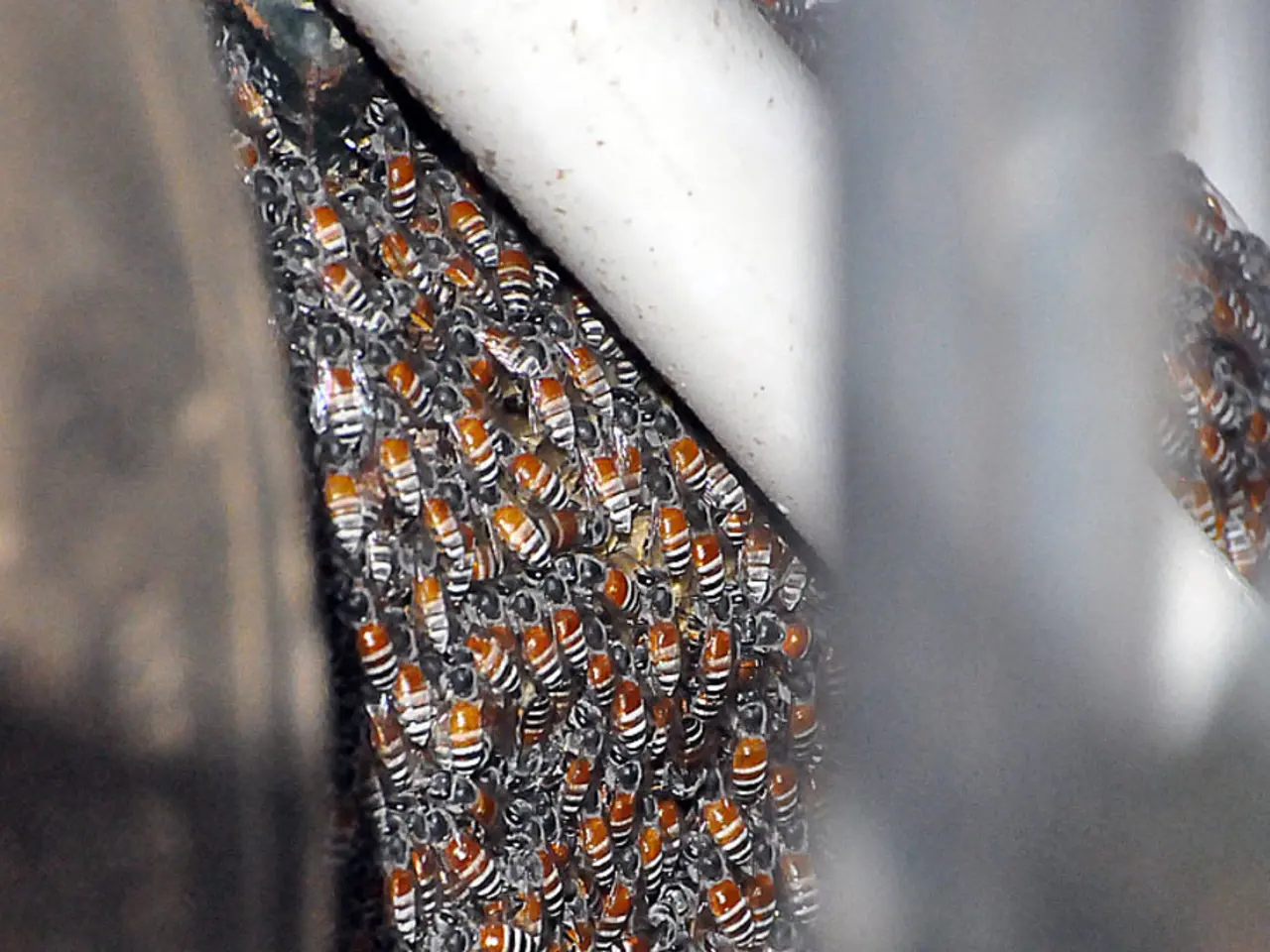Out with the Quarantine: American Foulbrood in Neuruppin Quashed
Restriction on American Foulbrood-affected region in Neuruppin lifted - Lifted Restriction on American Facility in Neuruppin, Germany
Wave goodbye to quarantine days, as the Ostprignitz-Ruppin district declares the American Foulbrood (AFB) outbreak in Neuruppin a thing of the past. This relieved pronouncement comes after months of isolation, as precautions were taken back in August 2024 following the detection of this destructive brood disease. The quarantine zone, with a radius of at least one kilometer from the epicenter, was no longer needed.
Previously, the restrictions deterred the removal of essential bee-related items, including live bees, dead bees, combs, and honey, from the apiary. Adult humans and their tasty honey are safe to consume, as AFB doesn't pose a threat to humans. Despite its lack of harm to humans, AFB demolishes bee brood, making it one of the notifiable animal diseases. Though unaffected by the disease, adult bees can unwittingly spread it, resulting in the downfall of entire bee colonies.
For a better understanding, consider the sustained consequences AFB brings to honeybee colonies in general, as local studies specific to Neuruppin are limited. This bacterial affliction is lethal, destroys infected hives, and spores can persist for decades. The unrelenting nature of AFB leads to the demise of affected colonies, often causing the total collapse of decimated hives.
Since AFB spores are extremely durable, effective management involves the brutal measure of destroying infected hives and equipment to prevent further contamination. This action is crucial for protecting the few remaining healthy colonies. If spores linger in the environment, they can endlessly infect colonies over several years, resulting in long-term losses within local apiaries.
Other disturbing symptoms include irregular brood patterns, larval death, and a bassackward appearance of diseased larvae. These indicators weaken colony growth, leading to reduced productivity and a weaker bee population. Chronic AFB episodes adversely affect beekeepers and the local ecosystem, as dwindling colonies decrease the availability of pollination services and valuable honey.
Despite the lifting of the quarantine, vigilant monitoring, stringent sanitation practices, and possible regulatory measures will be necessary to keep AFB at bay in Neuruppin, ensuring the sustainability of the local beekeeping community. It's a crucial battle for our four-winged friends, and one we must win!
In light of the conclusion of the American Foulbrood (AFB) outbreak, the local community might consider implementing vocational training programs for beekeepers, focusing on best practices and disease prevention strategies, like those offered in science and health-and-wellness courses. Additionally, to promote the overall well-being of the colony, beekeepers could incorporate fitness-and-exercise and nutritional aspects into their routine, with the goal of creating a balanced ecosystem for the bees, where they can thrive and continue to play their vital role in pollinating local flora.








